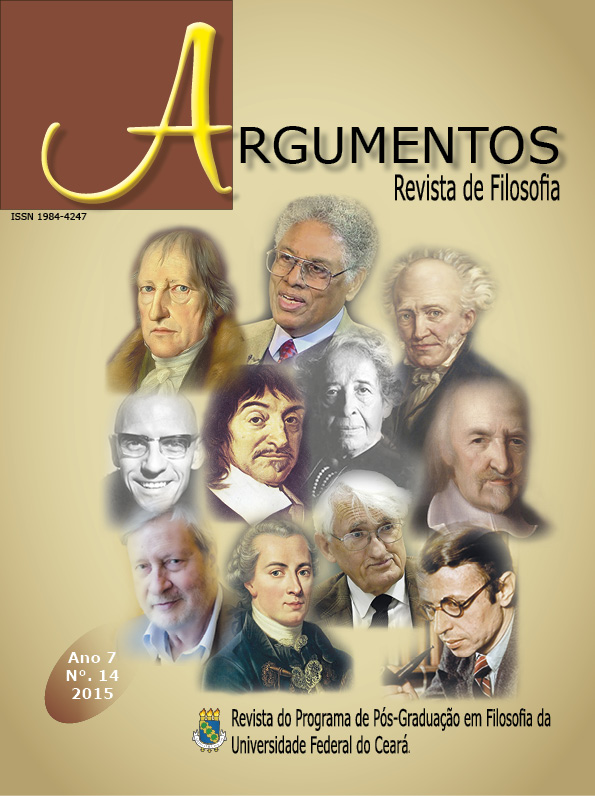Relationship with reality: finitude, universality and mediation in hegelian thought
Keywords:
Philosophy. Literature. Reality. Hegel. Goethe.Abstract
The objective of this text is to contribute for a look about the thought of Hegel, that closely matches the reality. For this, was chosen the perception while psychological category, which in its text is crafted in the cognitive dimension and allows you to think about a matter of philosophical tradition, with a significant density, the relationship between Uno and Multiple, being universal and that this sensitive properties. This text was used, the Phenomenology of spirit of Hegel and The years of learning Wilhelm Meister of Goethe’s in a creative dialogue with the goal of allowing a better view of the deductive Hegelian thought abstraction, cutting for this paragraphs 111 to 131 of his work in study. The texts were investigated on the highlight of the main concepts of Phenomenology in your excerpt used and its application to the narrative scenes of the novel goetheano, as well as the strategic insertions of commentators of Hegel. This approach is relevant because it is a critical reading of Hegel as a reductionist context of an unreal abstraction, as well as a contribution to further understand the different possibilities of dialogue between philosophy and literature.Downloads
Published
Issue
Section
License
Argumentos magazine is licensed under an International Creative Commons Attribution License.
The Magazine uses CC BY inclusion
1) The authors retain the copyright granted to the magazine or the right to initial publication, with the work regularly licensed under the Creative Commons Attribution, which allows the sharing of the work with acknowledgment of authorship and initial publication in this magazine.
2) The authors are authorized to contract additional applicable contracts, for non-exclusive distribution of the version of the work published in this journal (for example, publication in the institutional repository or as a chapter of the book), recognition of authorship and initial publication in this journal.
3) Authors are authorized and encourage to publish and distribute their work online (for example, in institutional repositories or on their personal pages) at any time before or during the editorial process, as they can generate productive changes, as well as increase the impact and reference of published work.




.jpg)










._._3.png)
1.jpg)
._._._.png)
